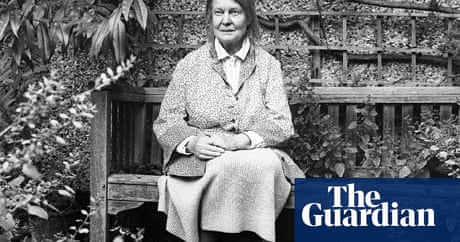Do Iris Murdoch’s novels still matter to people? asked Alex Clark in last week’s The Guardian. A set of reissued books to mark her centenary indicate that she is still inspiring a new generation of authors.
Her novels are full of passion and disaster, as Clark’s own byline puts it. People fall in and out of love; they grapple with fear, lust, power and sadness. Emotions are unmasked; dilemmas unfold. Faith might be lost or deepened; truth sought and told.
Clark suggests that the contrivances of her novels contained: ‘the terrifying truth that human beings, in the absence of God, are off the leash, motivated and animated by powerful internal forces beyond their apprehension, unable to conceive of goodness as an end in itself’.
Murdoch affirmed The Good rather than God, but nevertheless she didn’t simply cling to emotion and morality. In a series on Anglican woman novelists, Peter Hawkins explores her use of religious themes which infuse her creative writing (Church Times article on Iris Murdoch: Atheist but unapologetically Anglican).
Love, compassion and freedom from what she called the “fat relentless ego”, were somehow contained and accessible in the language of King James Version and the Book of Common Prayer. She found a place within the Anglican Christianity she grew up in, saying ‘I am moved by it, and I see its religious significance and the way in which ordinary life is given radiance’.
Her 1973 novel The Black Prince is inspired by Hamlet. Full of love and jealousy, anger, deception and ambition. There is one line which prompts a link to today’s readings - and thoughts of Mary Magdalene. It is this: ‘The only consolation I had was buying things. If I bought some pretty thing it cheered me up for a while.’
Consolation.
A few words of consolation, perhaps.
Something that makes the sad or disappointed feel better.
If it’s any consolation…
It could have been worse; perhaps there’s a silver lining.
Being consoled by shopping; consoling oneself with ‘some pretty thing’.
If we read the opening of Paul’s second letter to the Corinthians slowly, notice how many times he speaks of consolation:
God is consolation; God consoles us.
We are being consoled; and able to console others.
Ten times in five verses.
Paul’s own experience of suffering, and his experience of God’s goodness in the midst of it, prompts him to express that hope to others.
The God of all consolation is with us in afflictions: in Christ God suffers with us; and consoles us.
This consolation isn’t to make us feel better momentarily; it isn’t a consolation prize.
This is the depth and breadth of God’s love: enduring with us, bringing healing to us.
This is love which makes us impatient for justice; and patient in being with another.
Such hope is unshaken and unshakeable.
Such hope was the experience of Mary Magdalen.
Her life is often recast through the lens of passion and disaster akin to a Murdoch novel. A woman whose reputation is marked by assumptions about her sexual impropriety or prostitution. A woman who lives under the shadow of mental illness.
A woman of intense devotion. A woman who unashamedly weeps and anoints her living Lord before his death; a woman who waits in grief stricken exhaustion at the cross.
A woman whose tear stained eyes mistake her risen Lord for the gardener at the tomb; who is called by name, who longs to hold him close; but in letting go finds consolation in her calling.
Her tears are wiped away from her face.
A woman. A witness.
Not a teller of an idle tale; but one bearing words of consolation.
Her consolation is that the risen Christ has swallowed up death for ever.
Isaiah casts this vision as a future hope: speaking of a time of waiting. Waiting for joy and gladness, for salvation itself.
This is consolation: for grief and disgrace to be met comfort and dignity. For the ruthless to be subdued; for the poor, the needy and distressed to find a refuge.
This is consolation; to bring peace and hope; to bring joy and pardon.
Consolation brings to ordinary life a radiance.
The consolation of love divine frees us from our ‘fat relentless egos’.
In The Bell it is Murdoch’s abbess who says that ‘all our failures are ultimately failures in love’.
Mary Magdalen teaches us to wait at with patience at the tomb, for the power of love; for in dying Christ raises us too to eternal life.
Mary teaches us to go with impatience into the world: to witness to this radiance love which consoles us in discord, doubt, darkness and despair.
Consolation is no ‘pretty thing’: it isn’t the words we say; it is the capacity to wait with others in love; knowing that God is consoling and consolation.
© Julie Gittoes 2019



